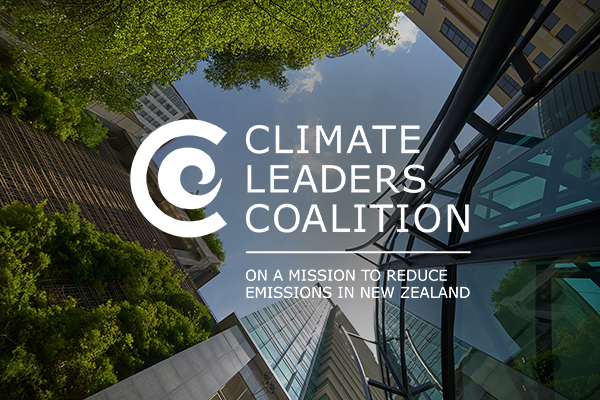Beyond the obvious ethical reasons for working to drastically reduce greenhouse gas emissions, here are some powerful arguments for why businesses should set science-based targets.


Beyond the obvious ethical reasons for working to drastically reduce greenhouse gas emissions, here are some powerful arguments for why businesses should set science-based targets.

For some businesses, especially small businesses, it can be hard to know where to start when it comes to reducing your emissions. That’s why members of the Climate Leaders Coalition have pulled together 10 top tips of practical things businesses can be doing right now to reduce their greenhouse gas emissions.

OPINION: There are those who see business as responsible for climate change.I don’t see a lot of point in arguing about that, there is not the time. We have already wasted too much time arguing about whether human activity as a whole is responsible. I take a simple view. It is beyond time for humanity to react to the negative consequences of climate change. Since much of what we do which impacts that change is conducted through the businesses we often work in it seems a good if not exclusive spot to take action.

Auckland’s ambitious targets and leadership on tackling climate change have earned C40 Innovator City status from the global C40 Cities Climate Leadership Group. The C40 Innovator City status acknowledges Auckland’s innovation and initiatives to lower the city’s carbon emissions and protect the environment.

Vector has today released a how-to guide to make it easier for tenants and residents of business, commercial and apartment buildings to switch to electric vehicles (EVs).
Vector’s ‘Connecting Electric Vehicle Chargers’ guide offers best-practice advice for installing EV chargers – including ensuring chargers are compatible with a wide range of EVs now and into the future.

Commercial building specialists are eyeing the Government’s new $100 million “green” investment fund to help upcycle New Zealand’s old buildings. Engineering consultants Beca said there was a huge opportunity to improve New Zealand’s building stock, now believed to be belching out 20 per cent of New Zealand’s carbon pollution.

Countdown, in partnership with WEL Networks, has installed three charging sites at five of its Waikato supermarkets – a first for the retailer. Electric vehicle (EV) users can charge their cars for free at either Countdown Hamilton, Countdown Bridge Street, Countdown Claudelands, Countdown St James or Countdown Huntly.

Chief Operating Officer for Global Operations Robert Spurway talks about the changes our manufacturing sites are making to improve their environmental footprint. Small changes can add up to big impacts.

Tiaki, the sustainable dairying programme launched by Fonterra last year, is ticking all the boxes for farmers. The programme, which helps farmers farm in more sustainable ways, has been in place for a year. At its launch Fonterra set an initial target of having 1000 farm environment plans in place.

Two-thirds of New Zealanders agree that climate change is the biggest problem the world is facing today, according to a 2017 Colmar Brunton survey. And in the Deloitte BusinessNZ Pre-Election Survey, climate change was one of the top 10 government-related issues for business, and more than 40% of respondents thought that climate change would affect the costs of input to their business.

As well as being a good for our business and great for the Southland region, this new contract helps Meridian to take action on climate change. The more aluminium that is produced in New Zealand using mainly renewable energy, the more this displaces production of aluminium using fossil fuel alternatives overseas.

Source: Sharechat
Speaking at the New Zealand Emissions Workshop on Wednesday, Sustainability and community manager Gerri Ward says Z Energy is ready for the rapid expansion of electric vehicles.